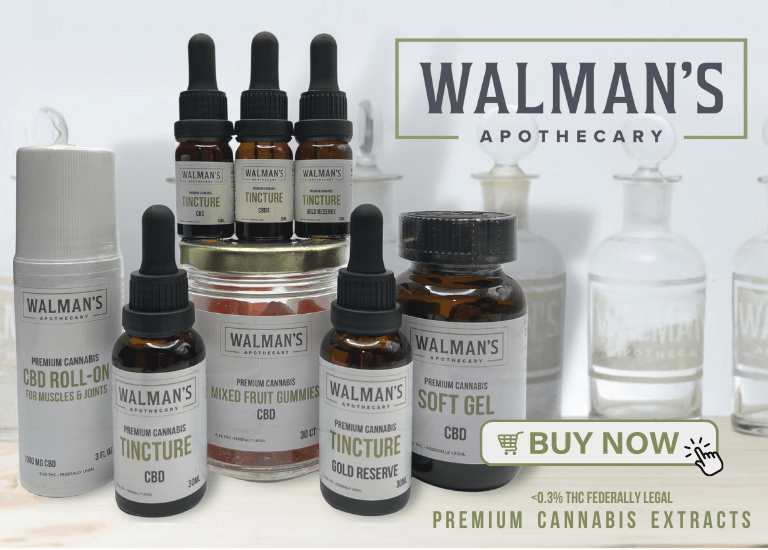Questions about the efficacy and side effects of antidepressants have more people turning to CBD for depression. But does it work? Here’s what you need to know.
Why Do People Use CBD for Depression?
Depression is different for everybody. It can be a bad mood that comes and goes or a gut-wrenching and hopeless feeling that lasts for years. It can touch every part of your life and make it hard to achieve even the smallest daily goals.
Unfortunately, for the over 17 million people in the U.S. who have at least one major depressive episode (per 2017 statistics from the National Institute of Mental Health), there are “significant limitations with the currently available antidepressant treatment strategies,” to quote the co-authors of a 2019 study.
While antidepressant medications can help some people, they come with common negative side effects, including loss of libido, drowsiness, dry mouth, insomnia, and weight gain. Some antidepressants carry a black box warning—the strictest for a pharmaceutical remedy—because of the risk of suicidal thoughts.
The shortcomings of antidepressant drugs, along with the 2018 of the Hemp Farm Bill that made hemp-derived CBD legal in all 50 U.S. states, have contributed to new studies on CBD and depression.
Research suggests that CBD can mimic the action of antidepressants, but without the risk of serious side effects. This article is not intended to convince users of pharmaceutical antidepressants to stop taking their medicine. On the contrary, there is a great risk to your wellbeing if you suddenly stop taking your medication. Ask your doctor if it’s safe to use both CBD and antidepressant medication.
Is CBD An Antidepressant?
The short answer: Yes and no. Some evidence demonstrates that CBD has the ability to exert antidepressant effects. But CBD is not an FDA-approved remedy for depression and it doesn’t work exactly like an antidepressant SSRI drug, which inhibits the reuptake of serotonin so that more of this “happy hormone” circulates freely, communicating with adjacent neurons and nerve cells.
Although large clinical trials on CBD for anxiety and depression are lacking, the preliminary research is very promising.
For instance, a 2019 review of several research studies, published in the Journal of Chemical Neuroanatomy, and co-written by the first researchers to demonstrate in lab animals the antidepressant effect of CBD, concludes, “CBD promotes both a rapid and a sustained antidepressant effect in animal models.”
A 2020 study in the journal, BMC Psychiatry says, “There is currently encouraging, albeit embryonic, evidence for medicinal cannabis in the treatment of a range of psychiatric disorders. Further larger well-designed randomized controlled trials are required to assess the effects of CBD in psychiatric disorders.”
How Does CBD Improve Depression?
CBD indirectly acts with the internal cannabinoid system or endogenous cannabinoid system (ECS). The CB1 and CB2 receptors of the ECS were discovered a relative blink of an eye ago (in the early 1990s) and were found to promote homeostasis (balance) in the body’s myriad and complex systems. Although CB1 receptors (the predominant ECS receptor in the brain) can help bring balance to hormones and neurotransmitters that affect mental health, the effects are short-lived. That’s why CBD, an exogenous or external cannabinoid, offers promise for treating depression. By activating the body’s internal cannabinoids, CBD can increase activity of happy hormones like serotonin.
In addition, CBD also indirectly stimulates the activity of the neurotransmitter, GABA, which helps ease anxiety. (Anxiety and depression often go hand in hand.)
If you’re looking for a more scientific explanation of how CBD works for depression, the 2019 study mentioned above explains: “CBD induces cellular and molecular changes in brain regions related to depression neurobiology, such as increased Brain Derived Neurotrophic Factor (BDNF) levels and synaptogenesis in the medial prefrontal cortex, as well as it increases neurogenesis in the hippocampus.”
Does CBD affect Serotonin?
Almost all of the so-called “happy hormone” serotonin is made in the gastrointestinal tract. That’s why people with deficient serotonin also have poor digestion and gut dysbiosis (low levels of beneficial gut bacteria), the latter of which has been shown to be a precursor or contributing factor of depression. In addition to mood and digestion, serotonin plays a role in regulating sleep. (If you have low levels of circulating serotonin, you won’t sleep well, and poor sleep quality may contribute to depression.)
So does CBD actually affect serotonin activity? Like the endocannabinoid system, it does so indirectly. CBD binds to serotonin’s receptor in much the same way that serotonin does. Interestingly, THC, the psychoactive chemical in cannabis, does not bind to serotonin’s receptor in the same way. (By law, CBD contains a maximum of 0.3% THC, an amount that is non-intoxicating—even for marijuana lightweights.)
Does CBD help with Bipolar Disorder?
Research shows marijuana may worsen symptoms associated with manic disorder. CBD may not improve bipolar episodes, but it may help prevent manic or depressive episodes. More research is needed on this important issue.
What is the Best CBD Oil for Depression?
Full-spectrum CBD oil is believed to offer the most benefits because it delivers the so-called “entourage” effect of several exogenous cannabinoids, in addition to CBD (CBN, CBDV, CBG, etc.) as well as terpenes, the substances in plants and flowers that exude fragrance and taste—and make us feel happy.
When choosing a brand of full spectrum CBD oil, choose a brand like Max & Steven’s that has every batch of organically-grown hemp-derived CBD tested for purity.
CBD For Depression: Conclusion
CBD has no reported serious side effects. It interacts with serotonin receptors, thereby increasing the activity of the happiness hormone. And, research shows, CBD has some of the same antidepressant actions of pharmaceutical remedies. So why not give it a try? But talk to your doctor about using CBD if you are currently taking antidepressant medication.

